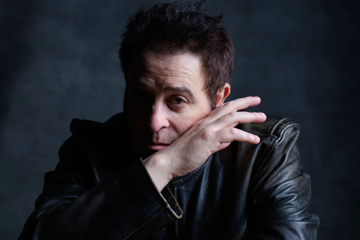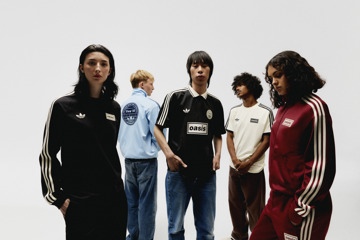The Four Worst Pirate Related Properties Of All Time
"In popular culture, pirates – developed, interesting, or marginally historically accurate pirates – have had a kind of shitty run."
With the recent acclaimed releases of both the video game Assassin's Creed IV: Black Flag and Tom Hanks' seafaring biopic Captain Phillips, it would seem that pirates – modern and golden-age alike – are once more in vogue. Which is good, because pirates are awesome.
Not the parrot-sporting, plank-walking, timber-shivering brand of cartoonish buccaneers, but the ultra-crazy “I'ma stick burning fuses in my hair and beard to scare the living Christ out of my enemies” sort, with – okay, yes – their incredibly unstable and violent and murder-y tendencies, but also their wanderlust and obsession with horizons, and their scurvy afflictions and insult sword-fighting skills.

It's in all the history books. (Picture via tvtropes.org)
So it's kind of sad that, in popular culture, pirates – developed, interesting, or marginally historically accurate pirates – have had a kind of shitty run. For every Secret of Monkey Island or first Pirates of the Caribbean movie, there's an Escape from Monkey Island and, like, three other Pirates of the Caribbean movies. It's kind of a running theme for the genre.
Don't miss a beat with our FREE daily newsletter
1. Age of Sail II (2001)
Every bit as exciting as it looks. (Picture via Wikipedia)
There was a time when it meant something for a game to start its title with the words Age of…, whether it was Empires, Mythology, Empires II, or … well, that was kind of it. Still – it meant quality. Strategy. Roggan. But this wholly unrelated property from Russian software company Akella, released through now-defunct US publisher TalonSoft, meant something different. Well, to be totally fair, the quality was there, kind of – for the time, the graphics were impressive (so impressive that they were known to crash the freaking game or make it run so slowly as to be unplayable).

Look upon my works, ye mighty, and despair. (Picture via teknoconsolas.es)
But Age of Sail II also came to be synonymous with boredom. Frustration. Mundanity. Those aren't words I associate with pirates, or battles. The navy – who obviously also appear in the game – yes, duh … but not pirates. Really, though, look at that screenshot for a second. Understand how unnecessarily complex that interface is for a process that should amount to, “Click ship. Fire cannon. Click to move out of firing line, maybe.”
It's not unbearable – I've played many games since with far more cluttered UIs than that – but compounded with the fact the interface was well known to not just be confusing but downright unreliable, that screenshot may as well be an animated GIF, for all the responsiveness the game was likely to give you.
If you came into Age of Sail II expecting naval combat, as opposed to, say, a frustrating exercise in increasingly aggressively prodding your ship to remind it that it is in the middle of goddamn sea Fight Club and shouldn't just be floating there doing nothing while the Spanish armada cannonballs it into oblivion, then you were probably always going to come away disappointed.
2. Pirates (2005)

Something something joke about plundering booty. (Picture via Wikipedia)
Don't get me wrong: as a sexual panther, I don't take issue with this film. In fact, with great irony, porn parodies sometimes well outshine the properties on which they're based. Uh … so I've heard. But as a fan of pirates and a human being, this movie is a black mark on humanity's record. Because of the implication.

Not that implication. Although – relevant. (Picture via Reddit)
See, not only is there just a frightening amount of boning going on for the duration of this movie, which should probably be expected despite its gross historical inaccuracy (I don't know – did pirates have three-ways with castaways/sea-hitchhikers often?) but the existence, budget and success of this film, while admittedly impressive, begat a stark, unsettling realisation: Even though there are plenty of incredible real female pirates on which to base a cinematic feature – or, hell, untold numbers of fictional stories just waiting to be adapted that could be engaging and thrilling and adventurous and show us that a lady-led swashbuckling film could be bankable – the one we got first was the one where everything's a loose rip-off of Curse of the Black Pearl and everyone solves their problems by fucking each other.
Yeah, it's hot, but it's also a little sad, like the cinematic equivalent of getting a lap-dance from a stripper who could've been a doctor.
3. The Island (1980)

Or the semi-submerged pirate wielding a knife. Whatever. (Picture via Wikipedia)
Rightly reviled upon its release and still a most baffling proposition to swallow today, 1980's The Island tells the story of intrepid journalist and kind of awful father Blair Maynard (Michael Caine), who decides that a fantastic way to reconnect with his estranged son would be to take him along on an investigative trip to the Bermuda Triangle to, you know, figure out what's up with the Bermuda Triangle. Well, I'll tell you: French pirates. That's what's up.

“Your mother was a hamster” – French pirate insult sword-fight proverb (Picture via blog.hu)
Yes, our hero and his idiot son get attacked and kidnapped by a colony of genuine, savage, Gallic swashbucklers who have stayed out of the public eye by chilling out in the Bermuda Triangle for 300 years, just raiding boats and slitting the throats of everyone who set foot on their island.
They then attempt to brainwash the son into piratehood but also keep Caine alive, because there wouldn't be a movie otherwise, and he ends up going all British John McClane on a ship full of legitimate killers and rapists while you sit there 114 minutes poorer for the experience, still bewildered by that totally uncalled-for martial arts expert in the tied-off shirt on the ship of cocaine smugglers attacked by the pirates at one point, and how that still manages to not be the peak of insanity in almost two hours of unrelenting clusterfuckery.

Yeah, I wasn't kidding. (Picture via kindertrauma.com)
4. Cutthroat Island (1995)

“What's that in the distance? Oh, it's my credibility.” – Matthew Modine (Picture via Wikipedia)
Talk about ballsing up the un-balls-uppable. Director of not-inconsiderable renown (Renny Harlin) – check. Strong, fearsome, beautiful, box office-proven leading lady (Geena Davis, who happened to be Harlin's then-wife) – check. Dashing male co-star replete with goofy goatee and mad fencing skills (Matthew Modine) – check. Budget of a larger sum than you'll ever see in your lifetime ($98 million in 1995 US dollars) – check. Adventure, danger, romance and derring-do – naturally. They even had the sweet retro hand-drawn poster with a stained-paper motif and the artistic sensibilities of the end of The Secret of Monkey Island, with more weapons.

Guybrush Threepwood: real talk since 1990. (Picture via archive.foolz.us)
So how did it go so terribly wrong?
Well, the film's problems started early on – Michael Douglas, who had originally signed on to play the role that Matthew Modine would later step into, the roguish William Shaw, had a rare bout of foresight and bailed on the film during pre-production. The consequent search for a replacement reportedly so consumed Harlin's energies that the sets and script were finished largely without his input, which led to frantic rewrites and costly rebuilds once Modine was on board. Not that either did any good – the film was savaged anyway, for everything from what some saw as gratuitous violence for a film of its themes and perceived audience to its convoluted and hackneyed plot.
Still, only a little bit more than $10 million in total revenue later, and Cutthroat Island became renowned as the biggest box office bomb of all time, although it has since been displaced multiple times (the 2000s were a bad 10 years for bad movies).
Its legacy, however, remains as that of an angel of death – for Carolco Pictures, the production company, which went bankrupt soon after the film's release; for Geena Davis, who was swiftly relegated from studio drawcard to the mum in the Stuart Little movies; and for pirate movies in general, another of which wouldn't see the light of day until Johnny Depp and 2003's Pirates of the Caribbean broke the... erm… curse.








